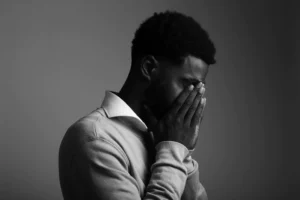You have to be suspicious of a compliment immediately followed by a half-hidden apology. You know the kind: “Oh my gosh! You look so great! You must have lost weight! I mean, you looked great before, too. You always look great. You just look extra-great now.” Inside that slush of praise is the real sentiment: I used to think you were fat. Or, along the same lines: “Can I just tell you how unbelievably insightful your comment in class today was? I had no idea you were so; I mean, I always thought you were pretty smart, but today;” Translated, Who would have thought a moron like you could come up with something so clever? It’s a funny thing about our collective American personality; we feel guilty giving compliments on progress because it implies that the recipient wasn’t at the apex of perfection before. It’s a silly thing to stress over.
Be that as it may, I confess that it irritates me when I get it. My ego does not take kindly to the reminder that I am not already at the apex even when the rest of me knows better. But the example of this apologetic flattery to which I was subjected recently is one heard by many, and one, I think, which may represent a more significant cultural quirk than mere guilt-complimenting.
What happened is that I wore makeup. It was, admittedly, a dramatic departure from the usual for me. My poor mother has been pleading with me for nearly a decade to look a little more “professional”: i.e., lose the embroidered Indian sundresses, pluck your eyebrows (which, I insist, are already at the apex of perfection without plucking), and start wearing makeup. I have stubbornly refused, in part due to sheer laziness. I have no desire to become high maintenance. Luckily, my mom’s plea is based neither in vicarious vanity nor social jockeying. She just thinks makeup befits a young woman wishing to command due respect and attention. She probably has a point, but till now I never took the bait.
What pushed me over the edge was the recent wedding of my roommate Jen and my consequent premiere appearance as a bridesmaid. In our school’s elegant chapel, amidst dozens of roses, dressed in ball-length gowns, even I had to concede it was too formal an occasion to go without. Armed with the moral support of the bride and the camaraderie of fellow bridesmaid Hilary (who’d had eerily similar conversations with her own mother), I approached hitherto untried territory: the Clinique counter at Macy’s. (To those of you who have read my reflections on the temptations of mammon, I openly though ashamedly confess to a measure of brazen hypocrisy.)
I was a somewhat resistant patient. I flatly refused foundation and powder, and my “beauty consultant” really struggled to get me to try the eyeliner, the application of which I still haven’t mastered. I was forced to reject out of hand the first supposedly stylish eyeshadow we tried because it made me look like I had a big black eye. At last, the consultant caught on and started giving me everything in the color “nude”; the blush was even “nude-nude” in case one nude wasn’t enough. That succeeded in calming me down and I finally finished my stint half an hour after Hilary, even though we’d both started at the same time.
After all those hypo-allergenic minutes squinting up at the consultant while she attacked my face with brushes and cotton balls, I became fascinated with her makeup, too: a flawless, poreless, minutely detailed mask that I vaguely wondered if I could peel off in one super thin layer. For me to achieve that look would take hours, but I bet she had her routine down to ten minutes. I didn’t look like her when I was done, true. But I did look different.
That’s when the slew of guilt compliments began. “Oh Sarah,” I heard between sighs of feminine delight, “you look so pretty with makeup.” Then the look of panic, the gulp of guilt, and the giveaway I-mean: “I mean, of course, you’re pretty without the makeup, too. You have such a healthy glow. But that eyeliner really does something;” If I hadn’t heard that same line such a ridiculous number of times in a twenty-four hour period, I might have gotten a trifle annoyed. As it was, the whole business made me laugh. And I had to concede the point: I do look really nice with makeup. I mean, I look fine without it. But a little kick of nude this and nude that definitely adds a certain je ne sais quoi. It also tends to confirm the suspicion that my grandpa was right when he told me that men are the more beautiful sex: they never wear makeup and don’t seem to suffer any for it.
The problem for me is that makeup is never just makeup. It’s not simply about looking a little prettier. It’s about a whole host of issues and fears and convictions that skip the physical and shoot straight for the psychological and spiritual. Like with my mom: wearing makeup means you’re a professional, responsible adult to be taken seriously. I know of another woman who always wears makeup when she has to see her ex-husband because it feels like a wall of protection between her and him. Makes you wonder what Tammy Faye thought she was protecting herself from. My high school friends plastered on their Bonnie Belle and Wet & Wild like it was vaudeville grease paint to add years and sophistication. Plenty of women wear it to take off years. While I was being done up at Macy’s, a lady in her ‘70s or ‘80s came to the counter for a new tin of powder. Her lipstick and blush were carefully applied; the morning ritual of doing her makeup probably helped her hold on to a bit of femininity and youth. I found it charming and appropriate. I could never understand, though, my freshman roommate’s obsession with her makeup; she could be practically dying of the stomach flu and yet would still apply the entire configuration of Estee Lauder before stepping out of her parents’ house in the country to check the mailbox.
Most telling, I think, is the colloquialism that equates applying makeup with “putting on my face.” What is that supposed to mean? I can hear it now: “Oh Sarah, you look so nice with a face. I mean, you look fine without one, too. But having eyes and a nose and a mouth just adds a certain je ne sais quoi;” I wonder what it says about our self-perception as women that we consider our natural faces inferior to our painted faces. Or that we don’t consider our faces worth noticing if they don’t hit a certain threshold of pretty. Or that we believe certain colors that never appear on human skin unless indicating grave illness can actually enhance it when in the form of eyeshadow (green = nausea, purple = bruise, yellow = gout).
Makeup isn’t the only thing in women’s lives to do this, of course. There is any number of substitutes for confidence and contentment that women use to make themselves more attractive. And they really are quite bizarre if you look at them with brutal objectivity. Diets equate certain foods with mortal sin and cultivate hunger as a virtue. Astringents take the oils away and lotions put them back in again. Deodorants replace human scent with artifical scent. Designer clothes trade money for social status. High-heeled shoes and tight pantyhose achieve something, maybe sex appeal, but it’s hard to believe that millions of women consider the discomfort they cause worth the prize. We even take razors to our bodies and remove hair from places we deem it unattractive (legs, armpits), yet leave it completely intact elsewhere (eyelashes, head, arms). Is it just me or is all of this a little weird? And yet I can’t imagine a socially acceptable lifestyle in this country that doesn’t include at least some of those things; I’d feel uncomfortable and ugly if I didn’t indulge in them regularly.
Then again, there might be something to the distinction between the pretty public face and the not-quite-pretty private one. Our less attractive moments are reserved for the ones we love. Roommates are the only people who see us first thing in the morning while our eyes are still full of gunk, our hair askew, our breath atrocious. Spouses are the ones who see us right before we go to bed at night, makeup washed off, a day’s worth of cares etched into our faces, fitted stylish clothing exchanged for grimy old pajamas. It would never do to appear in front of the CEO during a hostile takeover looking like that; but if you couldn’t look sloppy and unkempt in front of your husband or grandma or best friend, it would probably indicate a serious lack of trust. Appearances, after all, are all we have to go on out there in the harsh world, and it’s a sign of respect to look nice and clean for a stranger. Like my mom always says when she’s in an Oscar Wilde mood, “Only very shallow people are uninterested in appearances.”
Going too far, either way, is a danger. It’s foolish to think appearances don’t matter at all. Nothing is more troublesome than denying how much attraction plays into the mystery of love (who hasn’t had a friend “like a brother” that no amount of rationalizing could turn into a potential lover?). What people show to the public says a lot about what they think of themselves. And yet at the same, to judge solely by appearances, or to take a shallow attitude towards appearances — equating money with morality, or something equally judgmental — is just as bad. That is why makeup (and all those other many and various things) ends up being exactly what we make of them: either just makeup, or a complete psychological profile.
Anyway, on that note, I must refresh my own makeup before I go out for the day. I always feel so naked without my nude lipstick.
Copyright 2001 Sarah E. Hinlicky. All rights reserved.










